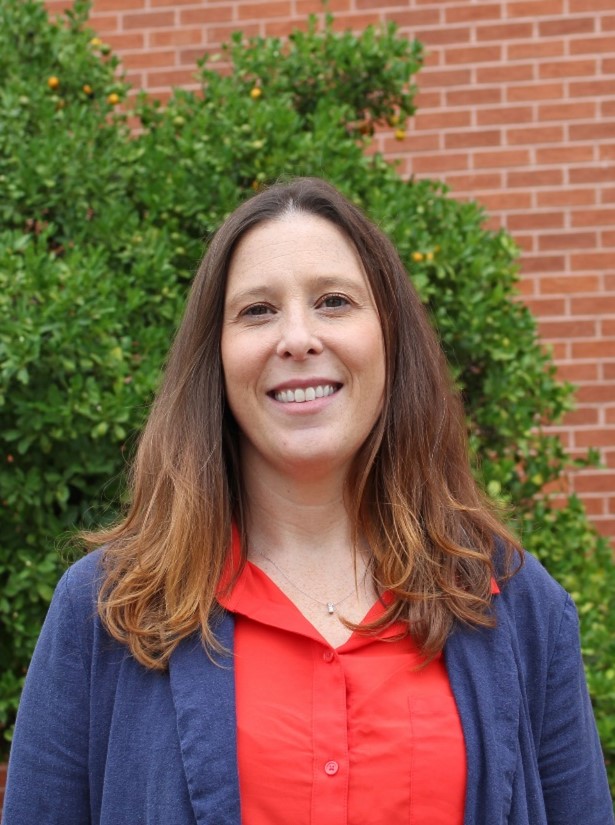
Erin L. Ratcliff, Professor, School of Materials Science and Engineering and the School of Chemistry and Biochemistry, Georgia Tech
"Soft PhotoElectroChemical Systems for Solar Fuels"
Abstract:
Highly scalable, durable π-conjugated polymer materials exhibit dynamic swelling to allow for ion and solvent insertion with electrochemical doping (1017 – 1021 carriers/cm3). The mixed electrical-ionic transport properties present a complex polymer/electrolyte interphase that if understood, could provide control over local environments afforded through synthesis, long-lived charge carrier lifetimes, and flexible, low-cost, and scalable thin film formats which circumvent the shortcomings of inorganic materials (surface states, grain boundaries, challenges in processing, and mechanically unstable platforms). The Center for Soft PhotoElectroChemical Systems (SPECS) is an Energy Frontier Research Center focused on the basic science questions that underpin the development of low-cost, robust energy conversion and energy storage technologies based on new organic polymer (plastic) electronic materials. These materials are predicted to fill a critical position in the U.S. energy portfolio, providing for next-generation fuel-forming platforms (energy conversion) and batteries (energy storage) that cannot currently be achieved with conventional (hard) inorganic materials.
The realization of all-organic semiconductor systems that capture light energy and convert it into chemical energy requires a detailed understanding of structure-property relationships governing the interconnected dynamics of photo-generation, transport, and electron transfer across multiple interfaces. Dark electrochemical processes must be understood before increasing the complexity via light-matter interactions. This talk will focus on increasing complex, multiple interface platforms, towards the goal of photons-to-electrons-to-molecules energy conversion processes for all-polymer photocathodes using a combination of theory and experimental capabilities from across the SPECS EFRC.
Bio:
Prof. Erin L. Ratcliff is a Full Professor in the School of Materials Science and Engineering and the School of Chemistry and Biochemistry at the Georgia Institute of Technology and holds a joint appointment at the National Renewable Energy Laboratory. She earned a B.A. in Chemistry, Mathematics, and Statistics in 2003 from St. Olaf College in Northfield, MN and a PhD in Physical Chemistry from Iowa State University in 2007. After completing a postdoc at the University of Arizona (2007 – 2009), she served as a Research Scientist and Research Professor in the Department of Chemistry and Biochemistry (2009 – 2014). She was previously an Assistant and Associate Professor in the Department of Materials Science and Engineering and the Department of Chemical and Environmental Engineering at the University of Arizona (2014 – 2024). She joined the faculty at Georgia Tech in 2024.
Her group “Laboratory for Interface Science for Printable Electronic Materials” uses a combination of electrochemistry, spectroscopies, microscopies, and synchrotron-based techniques to understand fundamental structure-property relationships of next-generation materials for energy conversion and storage and biosensing. Materials of interest include metal halide perovskites, π-conjugated materials, colloidal quantum dots, and metal oxides. Current research is focused on mechanisms of electron transfer and transport across interfaces, including semiconductor/electrolyte interfaces and durability of printable electronic materials.
Prof. Ratliff was also the Director of the newly funded Energy Frontier Research Center (EFRC) entitled “Center for Soft PhotoElectroChemical Systems (SPECS)” and is currently the Associate Director of Scientific Continuity for SPECS. She has received several awards for her research and teaching, including the 2023 Da Vinci Fellow and the 2022 College of Engineering Researcher of the Year award at UArizona, The Ten at Ten People of Energy Frontier Research Centers DOE Basic Energy Sciences award in 2019, and Senior Summer Faculty Research Fellow at the Naval Research Laboratory (2020, 2021, and 2024). Her research program has been funded by the Department of Energy Basic Energy Sciences, the Solar Energy Technology Office, Office of Naval Research, National Science Foundation, and the Nano Bio Materials Consortium.